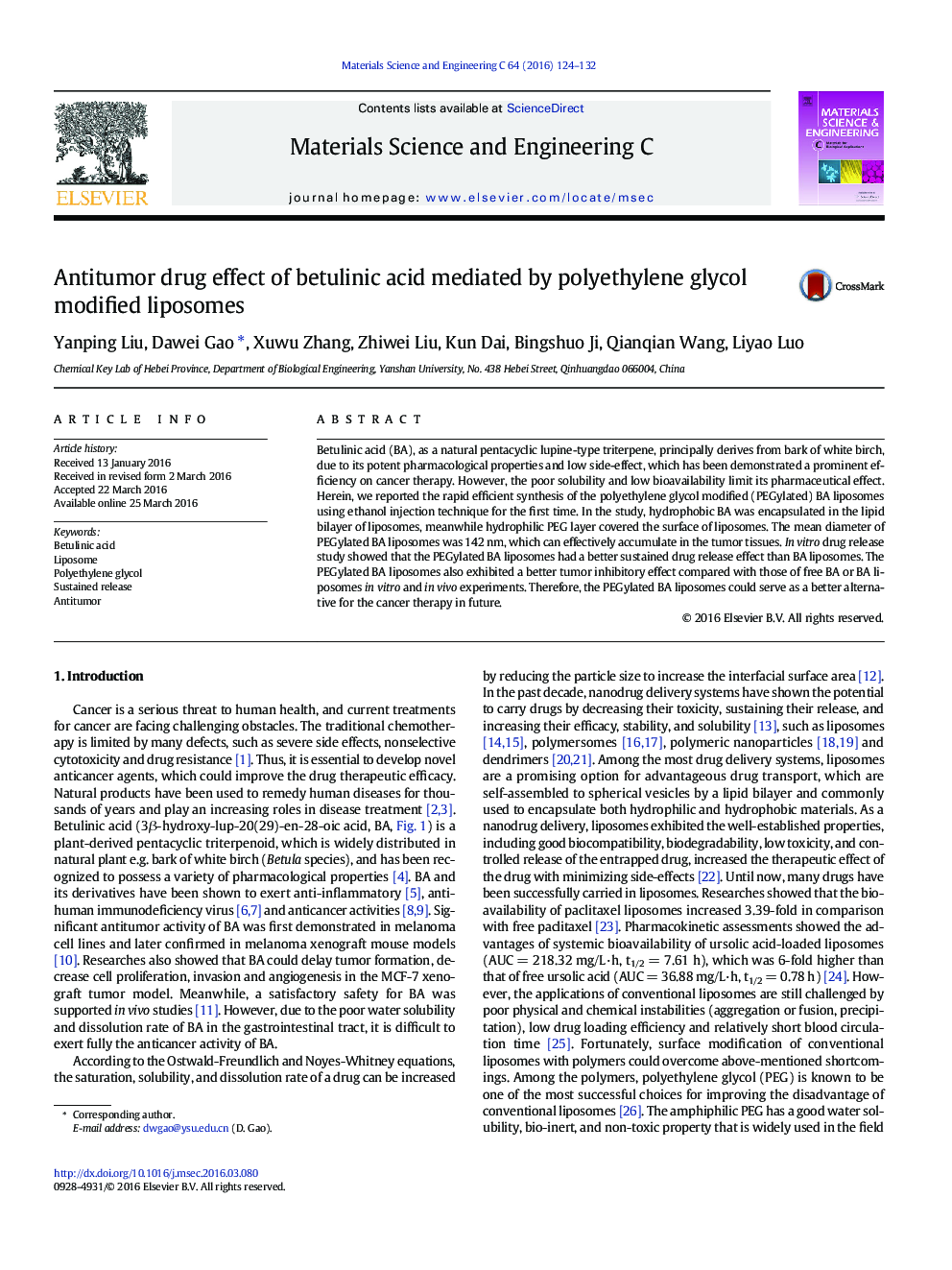| Article ID | Journal | Published Year | Pages | File Type |
|---|---|---|---|---|
| 1427942 | Materials Science and Engineering: C | 2016 | 9 Pages |
•Betulinic acid (BA) was successfully incorporated into the lipid phase of liposomes.•The grafting of PEG to the surface of liposomes can substantially increase its stability.•PEGylated BA liposomes showed favorable slow release of BA over a prolonged period of time.•BA liposomes modified with PEG presented stronger rigidity.•The as-synthesized PEGylated BA liposomes presented significantly superior antitumor efficacy.
Betulinic acid (BA), as a natural pentacyclic lupine-type triterpene, principally derives from bark of white birch, due to its potent pharmacological properties and low side-effect, which has been demonstrated a prominent efficiency on cancer therapy. However, the poor solubility and low bioavailability limit its pharmaceutical effect. Herein, we reported the rapid efficient synthesis of the polyethylene glycol modified (PEGylated) BA liposomes using ethanol injection technique for the first time. In the study, hydrophobic BA was encapsulated in the lipid bilayer of liposomes, meanwhile hydrophilic PEG layer covered the surface of liposomes. The mean diameter of PEGylated BA liposomes was 142 nm, which can effectively accumulate in the tumor tissues. In vitro drug release study showed that the PEGylated BA liposomes had a better sustained drug release effect than BA liposomes. The PEGylated BA liposomes also exhibited a better tumor inhibitory effect compared with those of free BA or BA liposomes in vitro and in vivo experiments. Therefore, the PEGylated BA liposomes could serve as a better alternative for the cancer therapy in future.
Graphical abstractSchematic illustration of the synthetic route to the PEGylated BA liposome and cancer therapy.Figure optionsDownload full-size imageDownload as PowerPoint slide
